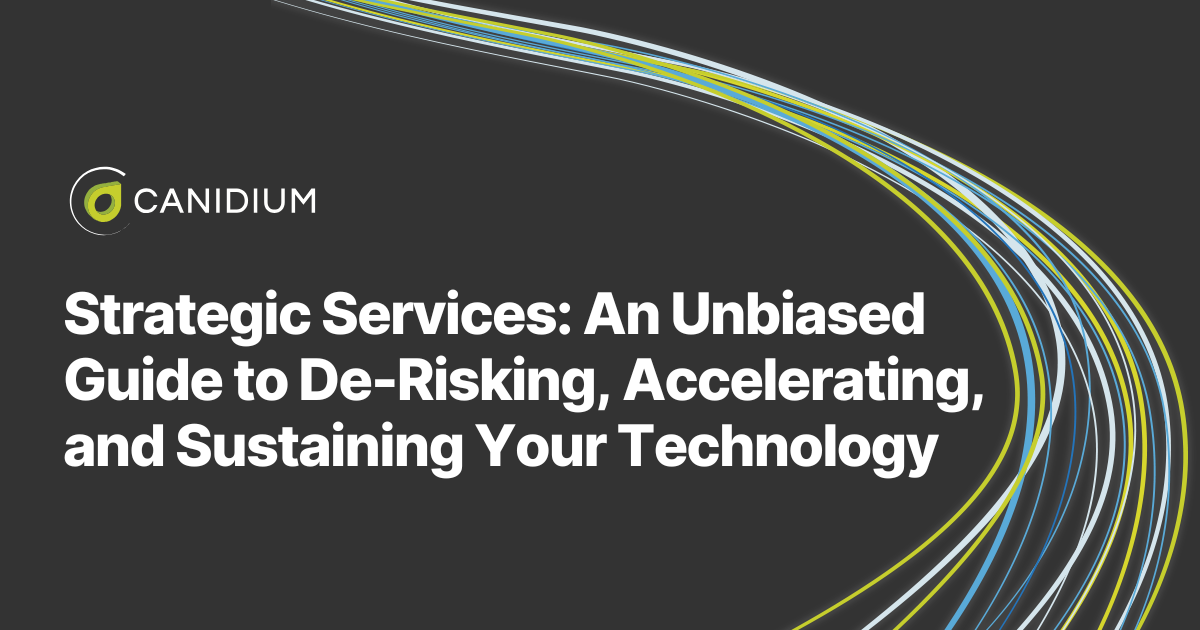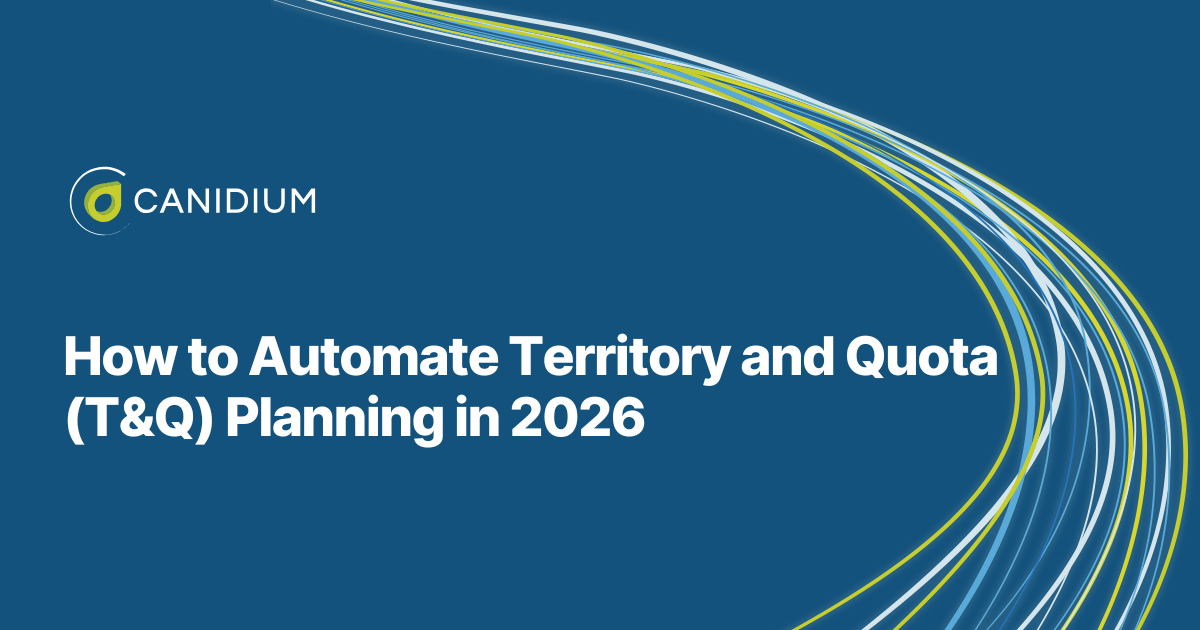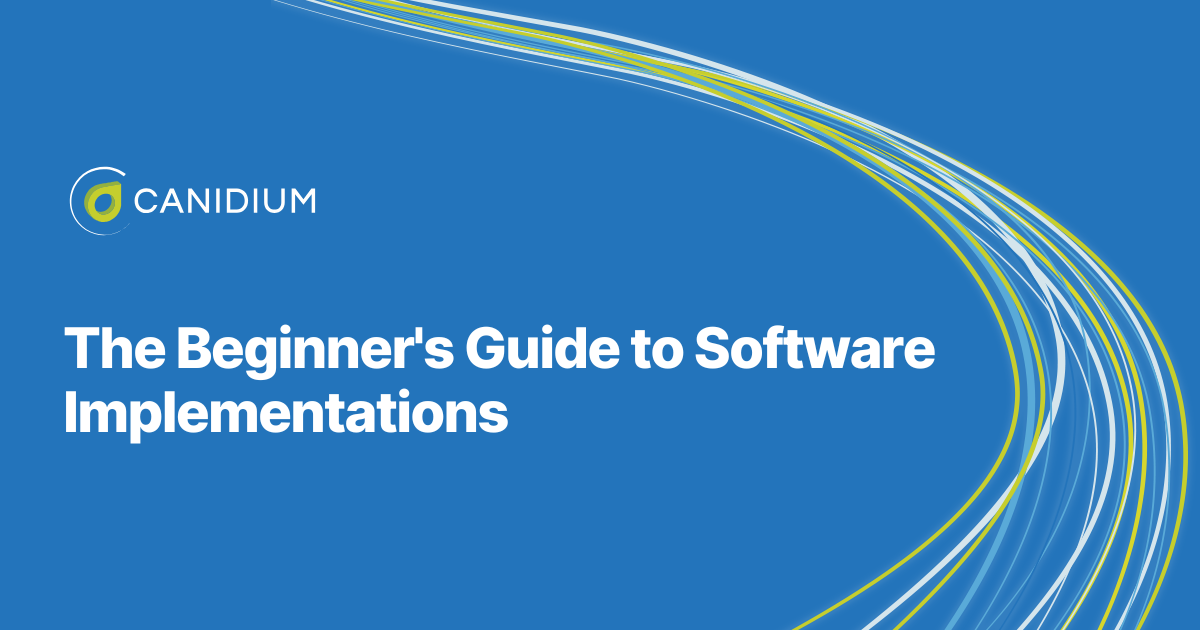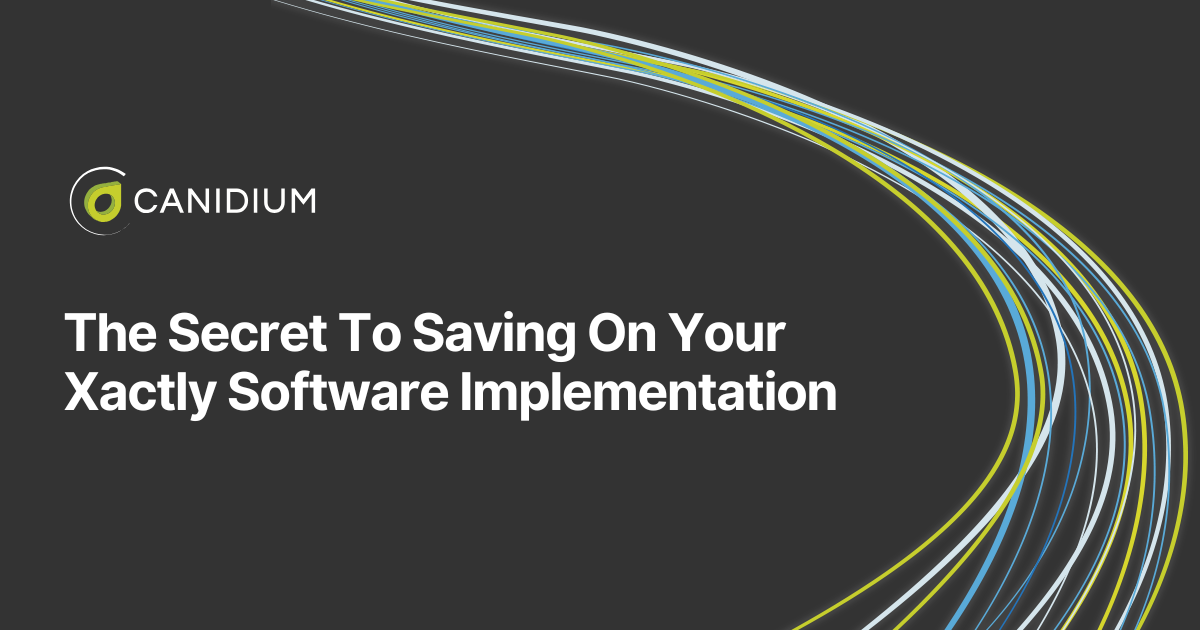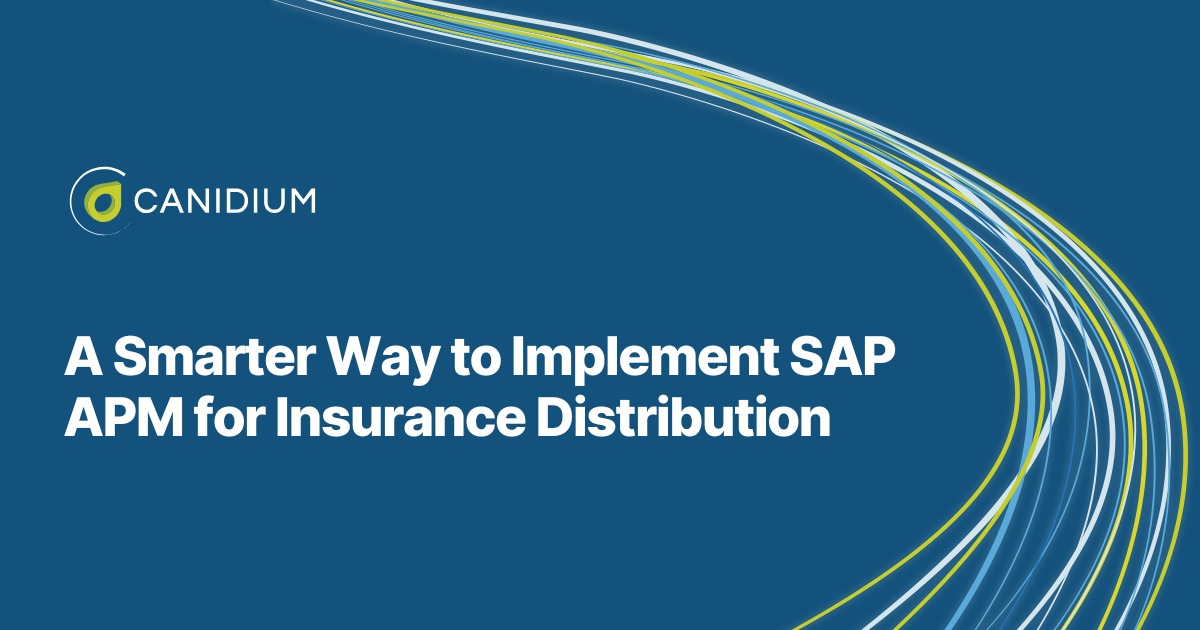Whether a significant software investment succeeds or fails is rarely because of software alone. Success does depend on the sophistication of your solution. However, it also comes from the scaffolding around the software: digital strategy, sound data insights, pragmatic governance, change management, momentum after go-live, and a team that can evolve the system as your business changes. That scaffolding is known as strategic services.
Across industries, organizations still bleed grant and funding opportunities dry from project missteps and data issues. The Project Management Institute reports that 11.4% of investment is wasted due to poor project performance—missed deadlines, overruns, scope creep—value that strategic consulting services can protect. At the same time, bad data costs the U.S. economy an estimated $3 trillion annually, underscoring why data stewardship and reporting discipline are not “nice-to-have” add-ons. They’re central to realizing ROI.
What Strategic Consultants Do
At a high level, “Strategic Solutions” is the umbrella term for third-party partnership opportunities and programs that span both private sector relationships and governmental agencies. These relationships grant access to highly proficient, experienced, and specialized strategic consultants and technical experts who align your processes and people with the capabilities of your technology. Think of it as structured guidance to make your software do what your business actually needs, backed by industry expertise in SPM/ICM, CPQ, pricing, Salesforce, and related analytics.
There are various subcategories of strategic services that encompass a range of different functions, covering everything from solution investment decision making to managed services.
Who Needs Strategy Consulting
Leaders who want more than implementation tasks: they want strategic planning, measurable outcomes, and durable ways of working. If you’re wrestling with complex compensation, product configuration, or fragmented reporting, this is the “context” work that turns simply tools into measurable value.
Of course, the type of strategic services you may need depend largely on your unique goals, challenges, and digital transformation maturity. Below, we cover different types of strategy consulting services and provide guidance on who benefits from these interventions and offerings.
How it works
The specific process your strategy consulting partner will take you through depends on who you are working with. Not all strategic services are equal. At Canidium, our team starts engagements with discovery and alignment—clarifying goals, surfacing constraints, and mapping workflows—then translating this information into roadmaps, governance cadences, and the right combination of readiness, data, operational support, and managed services. The result is a plan you can actually execute.
The Benefits of Strategy Consulting
The benefits of strategic services are highly tailored to the goals and needs of the organization. However, at a high level, some of the most common benefits companies can expect are reduced rework, quicker time-to-value, and initiatives tied to business outcomes instead of one-off tickets. Partnerships are about deploying strategies and processes that boost the power of your software so it sustains revenue goals, not just launch-week metrics.
Canidium's Strategic Consulting and Service Options
Not every company needs strategic services. However, the ones that do, have a lot to gain from selecting the right partner and the right service.
Below, we cover some of the broad categories of strategic services and who benefits from these offerings.
Implementation Readiness
Implementation readiness is a structured assessment that confirms your organization is prepared in terms of people, processes, and technology before a major project begins. It identifies risks, capability gaps, and planning assumptions early so timelines and budgets hold. Essentially, it's both a strategic and technical look into your current state, followed by corresponding strategic planning to mitigate risks and ensure the project runs smoothly and ends successfully.
Who Needs It
Any company approaching a new ICM/SPM, CPQ, or pricing project (or contemplating a switch from a legacy ICM to SAP) that wants to avoid mid-project surprises—especially those with fast growth, complex crediting, or multiple disconnected systems.
How It Works
Canidium runs workshops and reviews your documentation, integrations, and data posture to spot blockers before kickoff—things like unclear executive sponsorship, training gaps, brittle rules, or missing data contracts. The team then recommends a sequencing plan and risk mitigations you can take to the steering committee.
Implementation Readiness Services Example:
You plan to migrate from a homegrown commissions tool to SAP Incentive Management. Readiness reveals that manager approvals live in email chains and can’t be audited. Before build, you standardize approvals and surface them in system—preventing downstream disputes and month-end delays.
Operational Support, Enhancement & Expansion
Post-go-live, your world doesn’t stand still. Operational Support gives you an expert extension of your team to keep systems healthy, implement enhancements, and scale as products, territories, or regulations change. Your solution can't remain static if your company is growing. Your infrastructure will need to mirror the shifts of your business as a whole, which requires ongoing support.
Who needs it
Organizations that have launched ICM, SPM, CPQ, pricing, Salesforce, or an alternative solution and now face continuous change: new plans, new products, new reporting, new compliance obligations—without enough internal bandwidth to keep pace.
How it works
Canidium provides end-to-end production and admin support. You get help refining crediting, updating rules, adjusting eligibility, and adding new analytics—without pausing operations. It’s pragmatic capacity that prevents disruptions and burn-out.
Operational Support, Enhancement, and Expansion Services Example
New rebate regulations hit mid-quarter. With Operational Support, you model, test, and deploy the rule change in days—not weeks—so payout accuracy and trust never wobble.
Data Management & Reporting
Data management and reporting services provide stewardship and analytics design that turn raw inputs into accurate dashboards, audits, and decision support. The aim: leaders trust the numbers, analysts move faster, and AI-enabled features have clean data to learn from.
Essentially, this type of strategic consulting service offers bespoke dashboards, data transformation, and analytic insights that are easy for leadership to access and understand.
Who Needs It
If dashboards are doubted, audits are painful, or reports take hours instead of minutes, you need this. It’s also essential for teams preparing to adopt plan simulation, prescriptive analytics, or cross-system reporting. Poor-quality data imposes trillion-dollar-scale costs on the economy, many companies are impacted. Consequently, a significant number of organizations are in need of data management and reporting services.
How It Works
Canidium normalizes hierarchies and mappings, hardens data contracts, and builds pipelines and visuals that reflect how your business makes decisions—so you can act on insights quickly. Pre-implementation data prep and governance are part of the playbook.
Data Management & Reporting Services Example
Two regions roll up under different legacy hierarchies, inflating results in one and deflating the other. Data Management reconciles them, so quota setting and SPIFs are fair and field trust rebounds.
Accelerators & Pre-Packaged Solutions
Accelerators and pre-packaged solutions are expert-built frameworks that solve common configuration and reporting needs quickly, so your team can move from “proof of concept” to “in production” without reinventing the wheel. Canidium’s accelerators compress timelines, reduce risk, and apply patterns our consultants have proven across leading partner platforms. In short, you start from a strong foundation and tailor the last mile to your business.
Who Needs It
Teams facing tight deadlines, recurring compensation constructs (e.g., tiered accelerators, draws/recoups, standard crediting paths), or urgent reporting gaps that sap productivity and confidence. If time-to-value and predictable quality are critical, accelerators provide a pragmatic head start.
How It Works
Canidium deploys pre-built, best-practice components aligned to the target platform and then works with your stakeholders to tune rules, mappings, and visuals to your policies and data. The approach addresses inefficiencies quickly, stabilizes performance, and frees your team to focus on the 20% that’s uniquely yours.
Accelerators & Pre-Packaged Solutions Services Example
You’re adding a reseller tier with clawbacks mid-year and need reliable modeling and reporting in weeks, not months. With an accelerator as the baseline, Canidium sets up the core pattern in your sandbox, validates edge cases with your data, and moves to production after stakeholder walkthroughs—preserving accuracy and hitting the commercial window.
Managed Services
Managed Services provide an expert, always-on extension of your team to keep systems healthy, optimized, and evolving with your business. Rather than cycling between “big project” peaks and “break/fix” valleys, you get proactive monitoring, enhancements, and guidance that minimize downtime and amplify performance over time. It’s a reliability layer that lets your leaders focus on growth, not software maintenance.
Who Needs It
Organizations that want predictable capacity and cost control after go-live—especially those running ICM/SPM, CPQ, pricing, or Salesforce in dynamic environments. If your roadmap is outpacing internal bandwidth (or you’d rather not staff a large admin team), Managed Services provides flexible coverage, from light-touch support to full staff augmentation.
How It Works
Canidium pairs deep platform expertise with an operating rhythm—monitoring, issue prevention, minor/major enhancements, upgrades, and stakeholder enablement. Engagement models are flexible (e.g., prepaid hour blocks or time-and-materials) so you can scale support as needs change while maintaining a clear governance cadence.
Managed Services Example
Ahead of Q4, sales leadership asks for mobile-friendly plan transparency and revised dashboards. Your Managed Services team prototypes views, validates them with field managers, handles performance tuning, and deploys before kickoff—reducing disputes and support tickets during the most critical quarter.
Strategy Is the Scaffolding That Makes Software Work
Technology delivers its promise when the right scaffolding is in place. Implementation Readiness keeps you from inheriting risks you could have prevented. Operational Support, Enhancement & Expansion preserves momentum when the business shifts. Data Management & Reporting builds the trust and clarity leaders need to act. Accelerators & Pre-Packaged Solutions shorten the path to value without sacrificing quality. Managed Services ensures your investment keeps pace with your goals long after go-live.
Great platforms matter. But the difference between “we launched” and “we grew” is almost always strategy—clear decisions, strong governance, clean data, and a partner who helps you adapt with intention.
No-Pressure Next Step
If you’re weighing options or just want a second set of eyes, reach out for a free, no-pressure consultation. Our experts are happy to review your current state, surface the highest-leverage opportunities, and outline pragmatic next steps (with timelines and risk considerations) tailored to your situation. No commitments, just useful guidance you can use right away.


